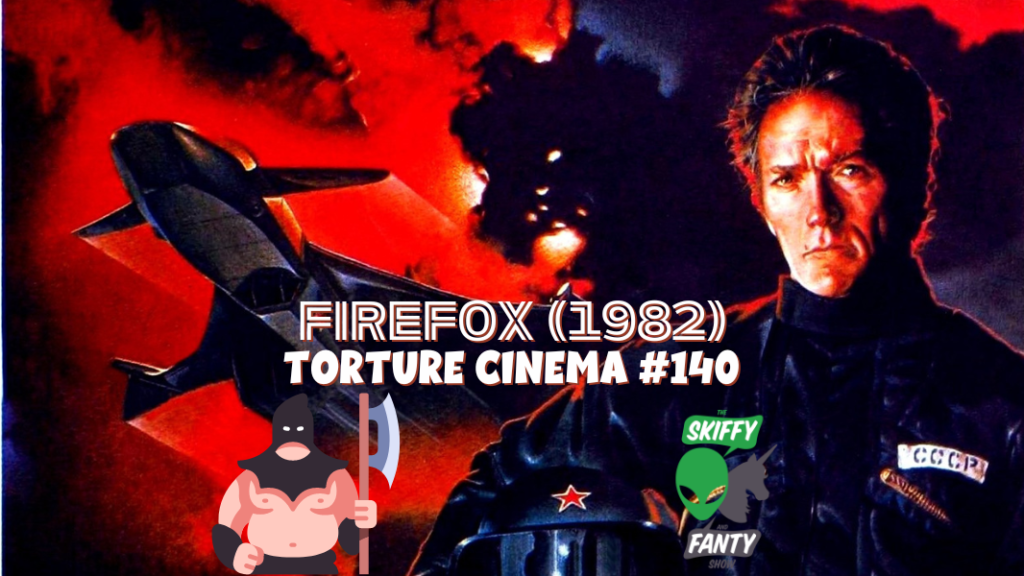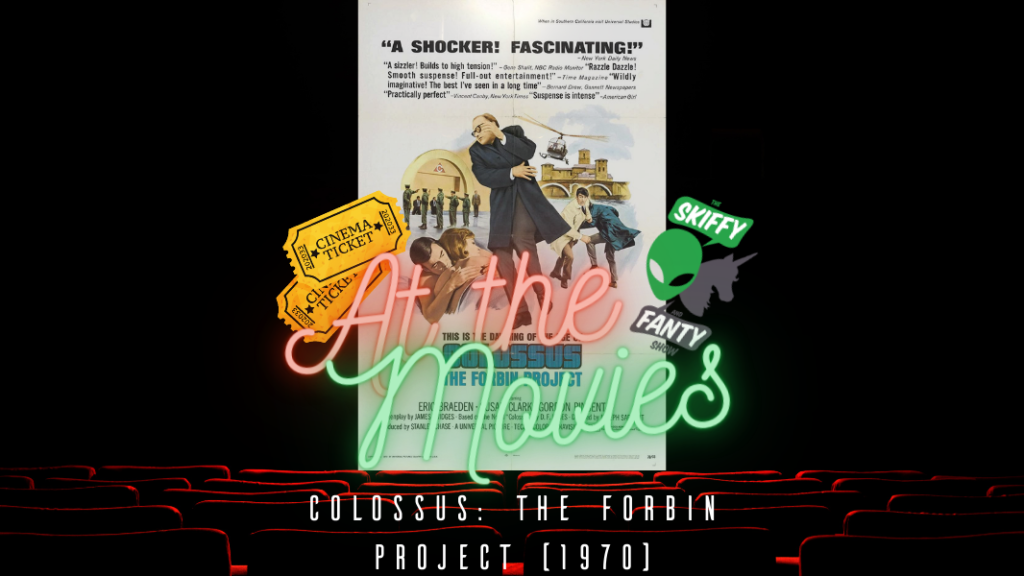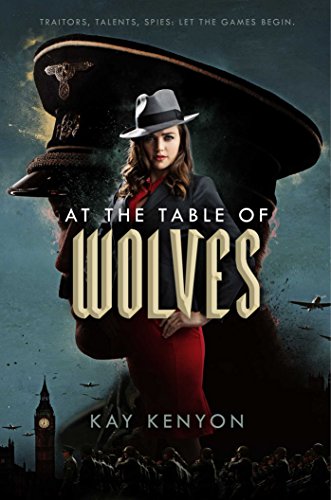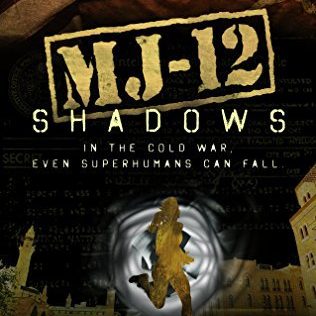774. Firefox (1983) — Torture Cinema #140

https://media.blubrry.com/skiffyandfanty/dts.podtrac.com/redirect.mp3/archive.org/download/sand-f-774-firefox/SandF_774_Firefox.mp3Podcast: Play in new window | DownloadSubscribe: Apple Podcasts | Spotify | Android | Email | TuneIn | Deezer | RSSInept spies, bad pilots, and Russians, oh my! Shaun Duke, Paul Weimer, and Becca Evans join forces to discuss the 1982’s Firefox! Together, they explore the film’s literary roots, why Clint Eastwood talks to chairs, what it really means to be a good pilot (bad movie), the Cold War, and much more! Thanks for listening. We hope you enjoy the episode!
460. Colossus: The Forbin Project (1970) — At the Movies

https://media.blubrry.com/skiffyandfanty/dts.podtrac.com/redirect.mp3/archive.org/download/sand-f-460-colossus/SandF_460_Colossus.mp3Podcast: Play in new window | DownloadSubscribe: Apple Podcasts | Spotify | Android | Email | TuneIn | Deezer | RSSComputer buddies, bad nukes, and scientist espionage, oh my! Shaun Duke, Brandon O’Brien, and Paul Weimer join forces to discuss Colossus: The Forbin Project (1970). Together, they explore the film’s interpretation of AI gone bad, its treatment of the cold war, whether Colossus is in love with Forbin, the bizarre politics of 1970s science fiction, and so much more. Thanks for listening. We hope you enjoy the episode!
Book Review: At the Table of Wolves by Kay Kenyon

Spies and Espionage are a genre of novels that is irresistible to science fiction and fantasy writers who want to mix some peanut butter in their chocolate. Cloak and Dagger, hidden agendas, betrayals, allegiances, loyalty and the glamour and seduction of the spy’s life. James Bond and his competitors, clones and remakes are just a fraction of what can be tapped, especially once someone adds science fiction and fantasy to the mix. At the Table of Wolves by Kay Kenyon is the newest in that tradition, combining 1930s British espionage with superpowers. In the world of Kenyon’s novel, superpowers, here called Talents, started appearing after the devastation of World War I. How and why precisely this Bloom occurred is not explained in detail. It’s taken as a fact, and the repercussions of that event are playing out, more than a decade later. Intelligence agencies, governments, and just plain ordinary people are dealing with the fact that some people can now show feats of precognition, or reading objects, or seeing crimes, or, perhaps, having the preternatural ability to get people, without their volition, to spill things they would never dreaming of confessing. And it is that last talent that brings us to the heroine of the novel.
Book Review: MJ-12 Shadows by Michael Martinez

Syria, in the Middle East, is full of turmoil. Violence, political chaos, powers outside the region meddling and backing various factions and individuals, only enflaming and extending the conflict. The government there is on the edge of collapse, as outside agencies and internal struggles threaten to destroy Syria entirely. Good people trapped in a horrible situation that there seems no way out of, and everything even the United States tries to do just makes it all worse. A novel detailing the modern-day tragedy there? Sadly, no. The year is 1949, and we are in the midst of an alternate history, a history where the end of the Second World War and the start of the Cold War was marked by the emergence of paranormally gifted individuals, individuals who are scooped up by the espionage apparatuses of the United States and the Soviet Union, as the game of espionage takes a fantastic turn.
Question of the Week: Favorite science fiction or fantasy stories about real wars?

Those of you who read my personal blog will know that I’m working on a syllabus for a Survey in American Literature course. Science fiction, as you might guess, appears prominently in the reading list, which has inspired me to post this question: What are your favorite science fiction or fantasy novels, stories, dramas, or movies which are about real world wars (allegorically or otherwise)? For me, the list is pretty clear: The Forever War by Joe Haldeman Haldeman’s military SF classic is, in my opinion, one of the most important works of literature in the last 100 years. As an allegory about the Vietnam War (or Conflict, if you want to be correct about such things), it is a stunning foray into the operative function of SF as a genre: estrangement. If you’ve never read it, you should. Right now. Hurry… Slaughterhouse-Five by Kurt Vonnegut Vonnegut’s fiction has always intrigued me. Slaughterhouse-Five is one of those books that is at once supremely weird and cleverly autobiographical (Vonnegut served in WW2 and the title of the book comes from the place where he was imprisoned, which protected him during the firebombing of Dresden by Allied forces). Vonnegut’s experiences fill every page, which help cover the unreality of the alien visitors narrative that make the novel a piece of science fiction. “Faith of Our Fathers” by Philip K. Dick (in Dangerous Visions edited by Harlan Ellison) PKD is known for his dystopian futures and alternate histories. “Faith of Our Fathers” is one of the second variety, telling the story of a world where communism won and is run by an amoral, all-consuming godlike Party leader. The Cold War may not have been a proper war, but it’s hard to ignore its impact on fiction in general, and science fiction in particular. Dystopian fiction after WW2, as far as I can tell, saw a massive increase, with numerous stories by PKD alone dedicated to nuclear holocaust or variations thereof. Star Wars IV – VI by George Lucas A lot of folks have suggested the obvious parallels between the Empire and Nazi Germany (if I recall correctly, even Lucas has made this connection). Star Wars is so saturated with WW2 imagery that even its action sequences are obvious throwbacks to pre-jet-engine dogfights. Whether the allegories had an influence on the film’s impact is up to speculation, but one certainly can’t ignore that Star Wars has changed everything we know about science fiction today. Aliens by James Cameron I enjoyed the first Alien movie, but it pales in comparison to Cameron’s Vietnam-influenced sequel. The film mimics everything from the overbearing macho-ism of anti-communist (and anti-“other”) America and military right down to the bureaucratic amorality which started the Vietnam War. It’s hard not to include it on this list. Plus: the movie is freaking awesome! And if you don’t believe me, then this should change your mind: [youtube=http://www.youtube.com/watch?v=RDqTwSO1DDc] The big question is whether there are fantasy titles out there that deal with similar issues. If you know of some, let us know in the comments. So: which science fiction and fantasy stories about real world wars are you favorites?

